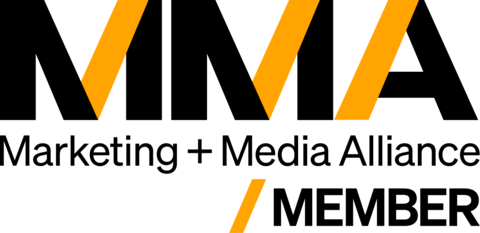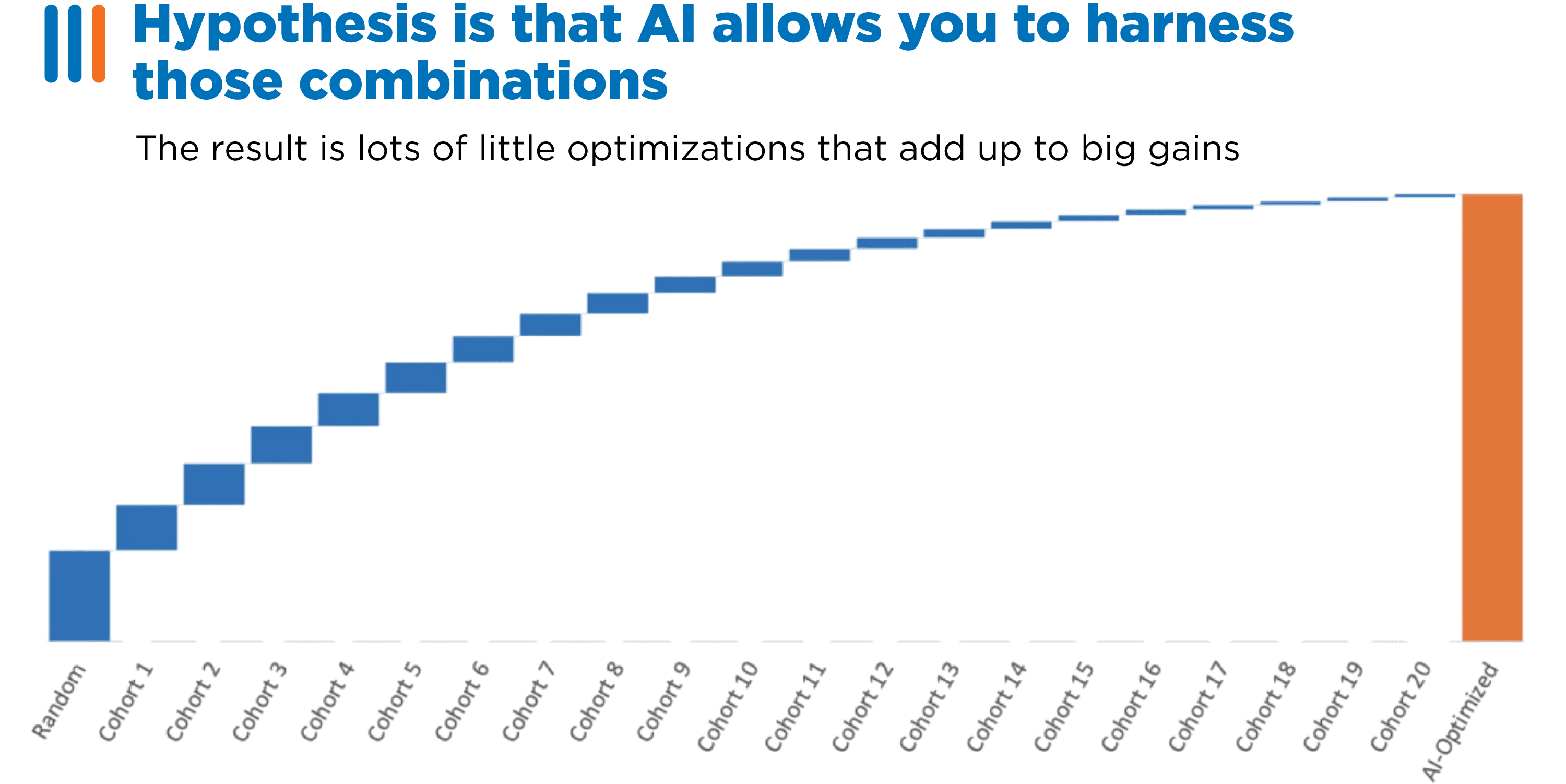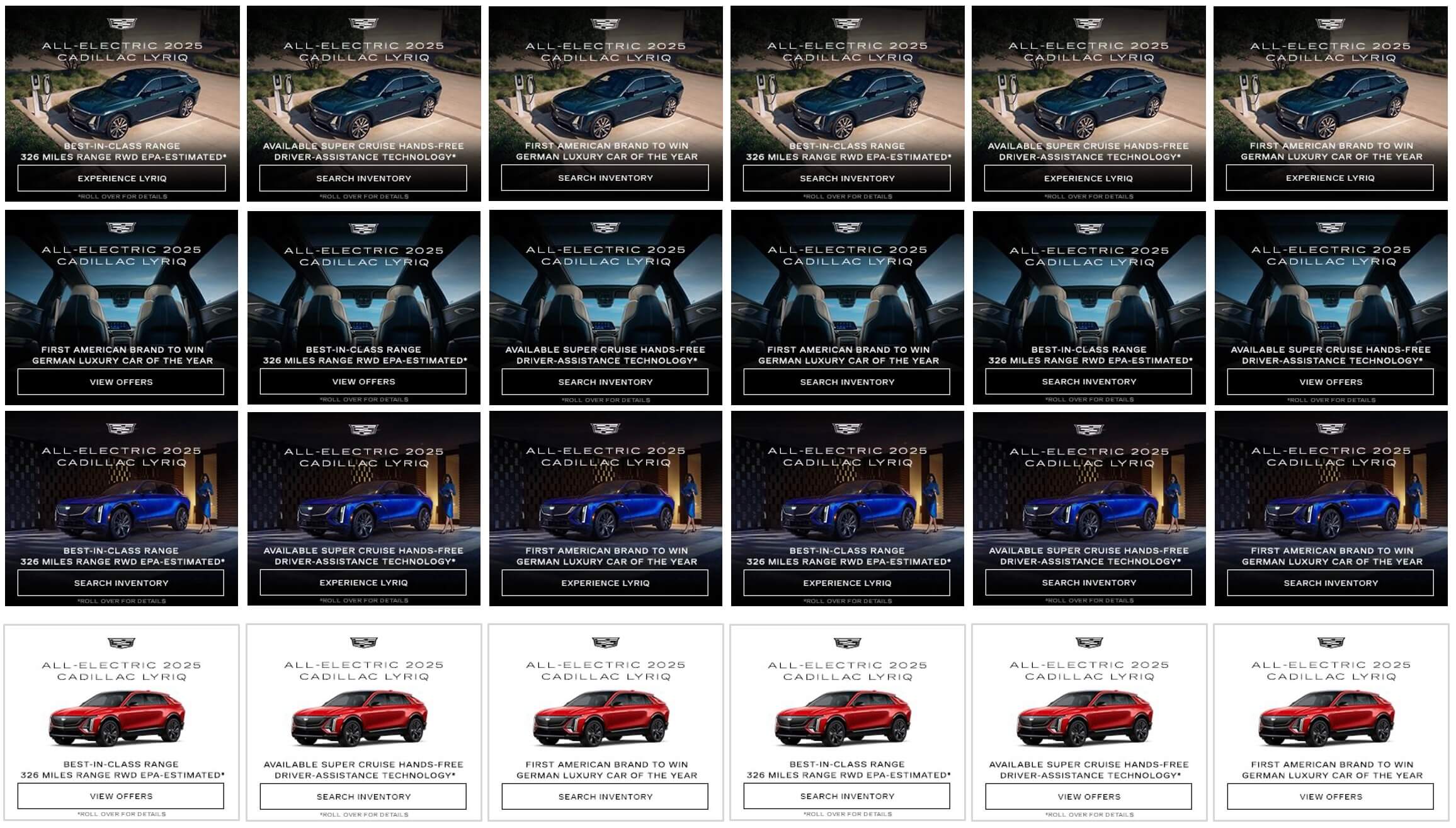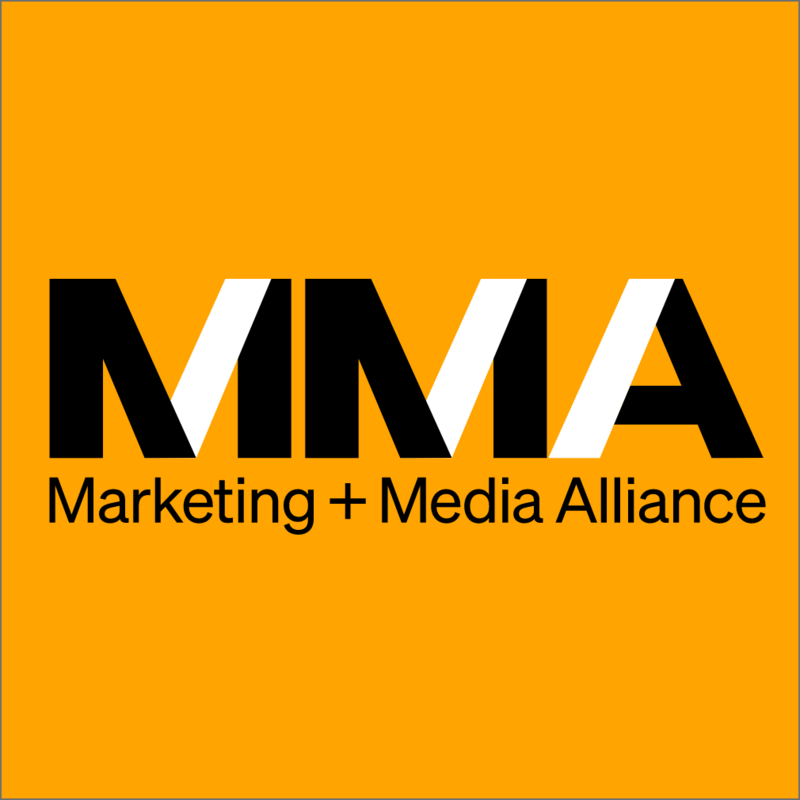
Aligning creative elements (image, headline, offer, CTA) to audience motivations via AI—then adapting mid-flight—will substantially increase HVBs vs randomized rotation and sustain/improve over time.

This application of AI/ML works by identifying cohorts and optimizing pre-approved elements and creative to each. MMA's approach uses two ML techniques combined with unsupervised learning:
- One-Hot Encoding
- K-Modes Clustering
RCT Type: Person-level with 65/35 earn-learn
Creative: 36 versions × 4 sizes = 144 total
Flight: 6 weeks with GenAI creative refresh
KPIs: HVBs, Vehicle Details Page Views
| 144 Total Versions |
× | 1,852,200 Audience variations ✓ DMA ✓ Time ✓ Day of Week ✓ Device OS ✓ Connection Type ✓ Segment ✓ Other Data Signals |
= | 266,716,800 opportunities to find value in the interactions between message & audience |

Lyriq achieved +139% HVB and +138% VDP lift; Sierra achieved +228% HVB and +229% VDP lift (conversions per person). Lift increased as the AI learned; no creative wear-out observed.
- Message-to-mindset alignment mattered: luxury-focused creative beat performance-focused for Cadillac; mid-flight shift added late lift
- Changing ad copy mid-campaign revealed a new high-performing audience segment that contributed a 19% incremental KPI lift. GM and MMA also introduced a new ‘towing’-themed creative mid-campaign, based on what it had learned so far.
- GenAI analysis suggested storyboard changes (e.g., comfort/safety emphasis for retired empty nesters) while preserving performance angles for affluent professionals with families
- GM has industrialized an ~8-week test-to-deployment motion in always-on creative ops
